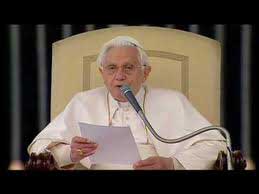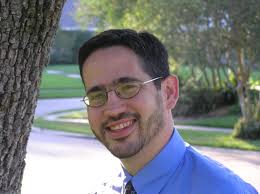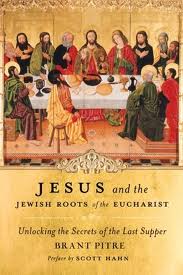This extraordinary Eucharistic hymn, by the great St. Thomas Aquinas, is a fan favourite among the faithful. This version regretably leaves out the second verse. The recording is from the CD illuminations, compiled by Dan Gibson. the Latin text and English translation follow:
| Latin text | An English translation | |
|---|---|---|
|
|
Tags: Dan Gibson, faith, last supper, st thomas aquinas, thomas aquinas
This entry was posted on Monday, January 28th, 2013 at 9:54 am
You can follow any responses to this entry through the RSS 2.0 feed.
 VATICAN CITY, 11 JAN 2012 (VIS) 
Jesus’ prayer during the Last Supper was the theme of Benedict XVI’s catechesis during his general audience, which was held this morning in the Paul VI Hall in the presence of 4,000 faithful.
The Pope explained how the emotional backdrop to the Last Supper, in which Jesus bade farewell to His friends, was the immanence of His approaching death. Moreover, in the days in which He was preparing to leave His disciples, the life of the Jewish people was marked by the approaching Passover, the commemoration of the liberation of Israel from Egypt.”It was in this context that the Last Supper took place”, the Holy Father said, “but with an important novelty”. Jesus “wanted the Supper with His disciples to be something special, different from other gatherings. It was His Supper, in which He gave something completely new: Himself. Thus Jesus celebrated the Passover as an anticipation of His Cross and Resurrection”.
The essence of the Last Supper lay in “the gestures of breaking and distributing the bread, and sharing the cup of wine, with the words that accompanied them and the context of prayer in which they took place. This was the institution of the Eucharist: the great prayer of Jesus and the Church”. The words the Evangelists use to describe that moment “recall the Jewish ‘berakha’; that is, the great prayer of thanksgiving and blessing which, in the tradition of Israel, is used to inaugurate important ceremonies. … That prayer of praise and thanks rises up to God and returns as a blessing. … The words of the institution of the Eucharist were pronounced in this context of prayer. The praise and thanksgiving of the ‘berakha’ became blessing and transformed the bread and wine into the Body and Blood of Jesus”.
Jesus’ gestures were the traditional gestures of hospitality which a host would extend to his guests, but in the Last Supper they acquired a more profound significance, Pope Benedict explained. Christ provided “a visible sign of welcome to the table upon which God gives Himself. In the bread and the wine, Jesus offered and communicated His own Self”. Aware of His approaching death, “He offered in advance the life that would shortly be taken from Him, thus transforming His violent death into a free act of the giving of Self, for others and to others. The violence He suffered became an active, free and redemptive sacrifice”.
“In contemplating Jesus’ words and gestures that night, we can clearly see that it was in His intimate and constant relationship with the Father that He accomplished the gesture of leaving to His followers, and to all of us, the Sacrament of love”, said the Pope. During the Last Supper Jesus also prayed for His disciples, who likewise had to suffer harsh trials. With that prayer “He supported them in their weakness, their difficulty in understanding that the way of God had to pass through the Paschal mystery of death and resurrection, which was anticipated in the offer of bread and wine. The Eucharist is the food of pilgrims, a source of strength also for those who are tired, weary and disoriented”.
Benedict XVI went on: “By participating in the Eucharist we have an extraordinary experience of the prayer which Jesus made, and continues to make for us all, that the evil we encounter in our lives may not triumph, and that the transforming power of Christ’s death and resurrection may act within each of us. In the Eucharist the Church responds to Jesus’ command to ‘do this in remembrance of me’, she repeats the prayer of thanksgiving and blessing and, therewith, the words of transubstantiation of the bread and wine into the Body and Blood of the Lord.
Our Eucharistic celebrations draw us into that moment of prayer, uniting us ever and anew to the prayer of Jesus”.
“Let us ask the Lord that, after due preparation also with the Sacrament of Penance, our participation in the Eucharist, which is indispensable for Christian life, may always remain the apex of all our prayers”, the Pope concluded. “Let us ask that, profoundly united in His offering to the Father, we too can transform our crosses into a free and responsible sacrifice of love, for God and for our fellows”.
At the end of his catechesis the Holy Father delivered greetings in a number of languages to the pilgrims present in the Paul VI Hall, inviting them to participate with
“faith and devotion” in the Eucharist which, he said, is indispensable for Christian life as well as being the school and culmination of prayer. Addressing young people, the sick and newlyweds, he pointed our that last Sunday’s Solemnity of the Baptism of the Lord is an occasion to reflect upon our own Baptism. “
Dear young people”, the Pope exclaimed, “live your membership of the Church, the family of Christ, joyfully. Dear sick people, may the grace of Baptism ease your sufferings and encourage you to offer them to Christ for the salvation of humanity. And you, dear newlyweds, … base your marriage on the faith which you received as a gift on the day of your Baptism”.
AG/Â Â Â Â Â Â Â Â Â Â Â Â Â Â Â Â Â Â Â Â Â Â Â Â Â Â Â VIS 20120111 (880) (more…)
Tags: catholic, catholic podcast, catholic prayer, cathollc spirituality, eucharist, last supper, lord's supper, prayer
This entry was posted on Thursday, January 12th, 2012 at 9:30 am
You can follow any responses to this entry through the RSS 2.0 feed.
What a fantastic book, what a fantastic (and fun) interview with Dr. Brant Pitre, discussing “Jesus and the Jewish  Roots of the Eucharist”. This book has what it takes to become a classic, similiar in importance as Dr. Scott Hahn’s “The Lamb’s Supper”!
Roots of the Eucharist”. This book has what it takes to become a classic, similiar in importance as Dr. Scott Hahn’s “The Lamb’s Supper”!
The description from the book says it best….“Jesus and the Jewish Roots of the Eucharist shines fresh light on the Last Supper by looking at it through Jewish eyes. Using his in-depth knowledge of the Bible and ancient Judaism, Dr. Brant Pitre answers questions such as: What was the Passover like at the time of Jesus? What were the Jewish hopes for the Messiah? What was Jesus’ purpose in instituting the Eucharist during the feast of Passover? And, most important of all, what did Jesus mean when he said, “This is my body… This is my bloodâ€?
To answer these questions, Pitre explores ancient Jewish beliefs about the Passover of the Messiah, the miraculous Manna from heaven, and the mysterious Bread of the Presence. As he shows, these three keys—the Passover, the Manna, and the Bread of the Presence—have the power to unlock the original meaning of the Eucharistic words of Jesus. Along the way, Pitre also explains how Jesus united the Last Supper to his death on Good Friday and his Resurrection on Easter Sunday.
Inspiring and informative, Jesus and the Jewish Roots of the Eucharist is a groundbreaking work that is sure to illuminate one of the greatest mysteries of the Christian faith: the mystery of Jesus’ presence in “the breaking of the bread.â€
and be sure to check out Dr. Brant Pitre’s excellent website!
Tags: brant pitre, catholic, catholic podcast, catholic prayer, cathollc spirituality, doubleday religion, feast of passover, Jesus, jewish roots, last supper, manna from heaven, mysteries, work
This entry was posted on Friday, February 11th, 2011 at 12:38 am
You can follow any responses to this entry through the RSS 2.0 feed.

